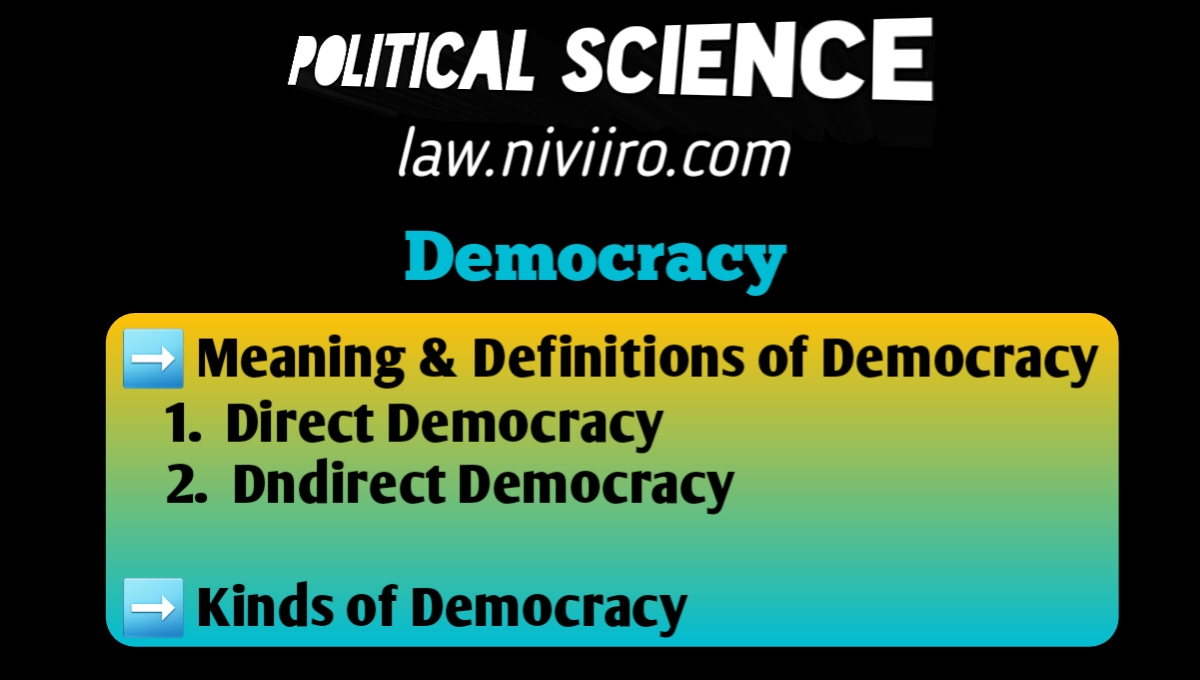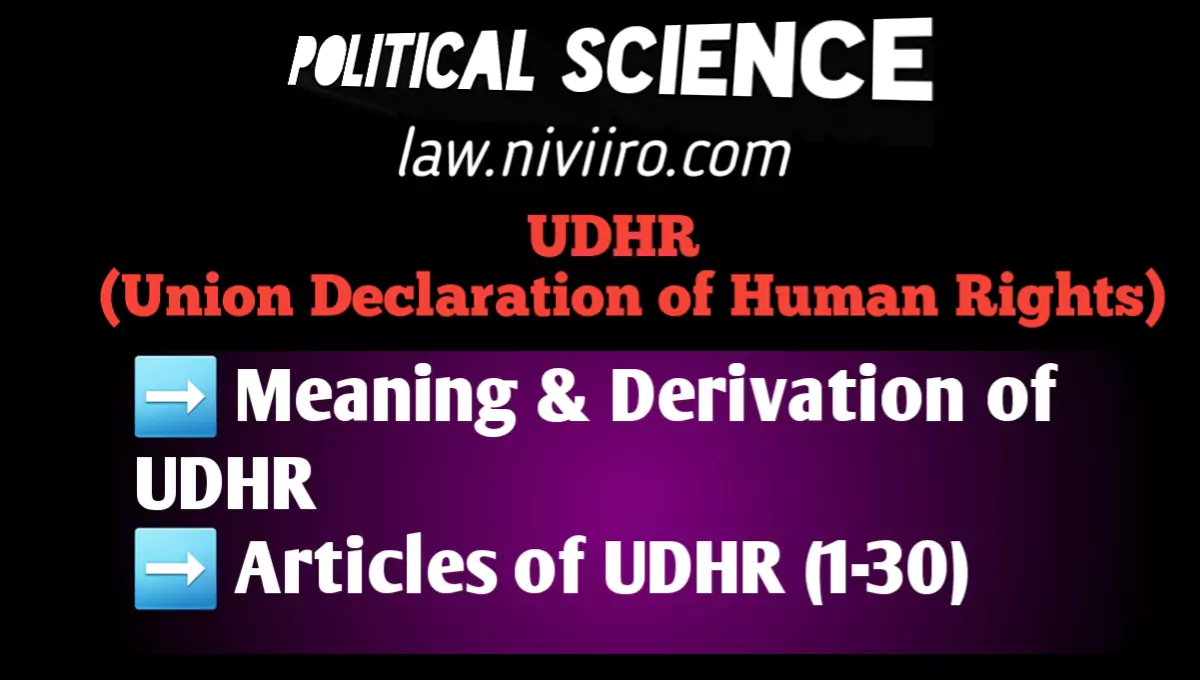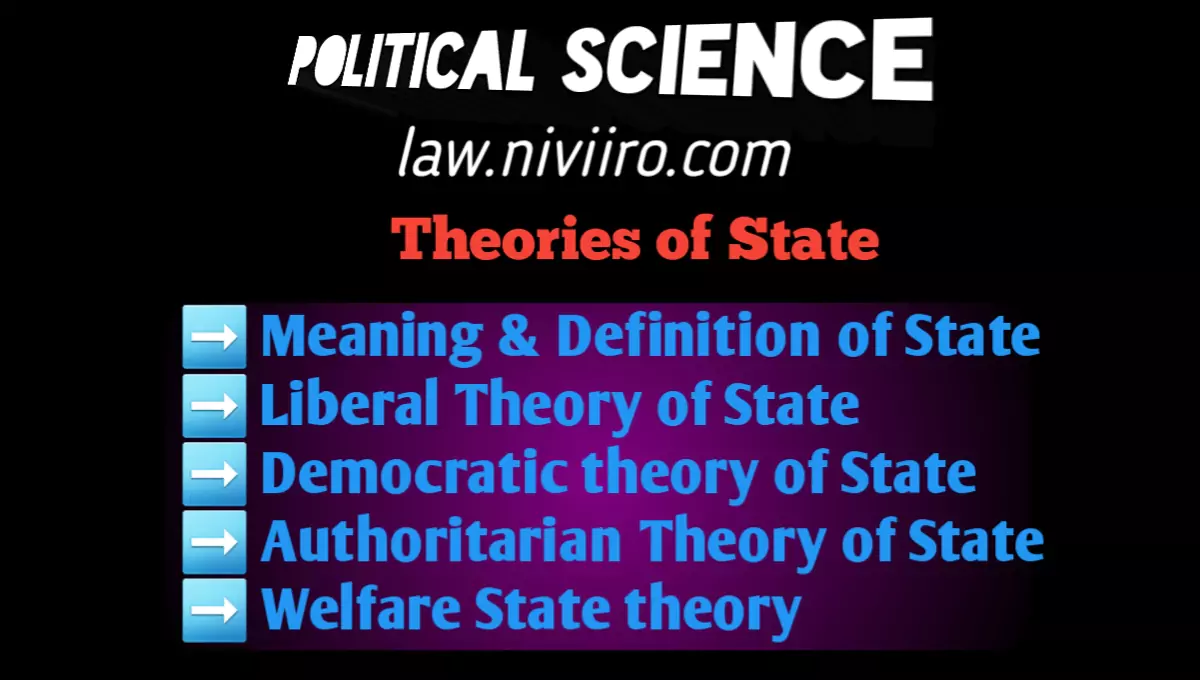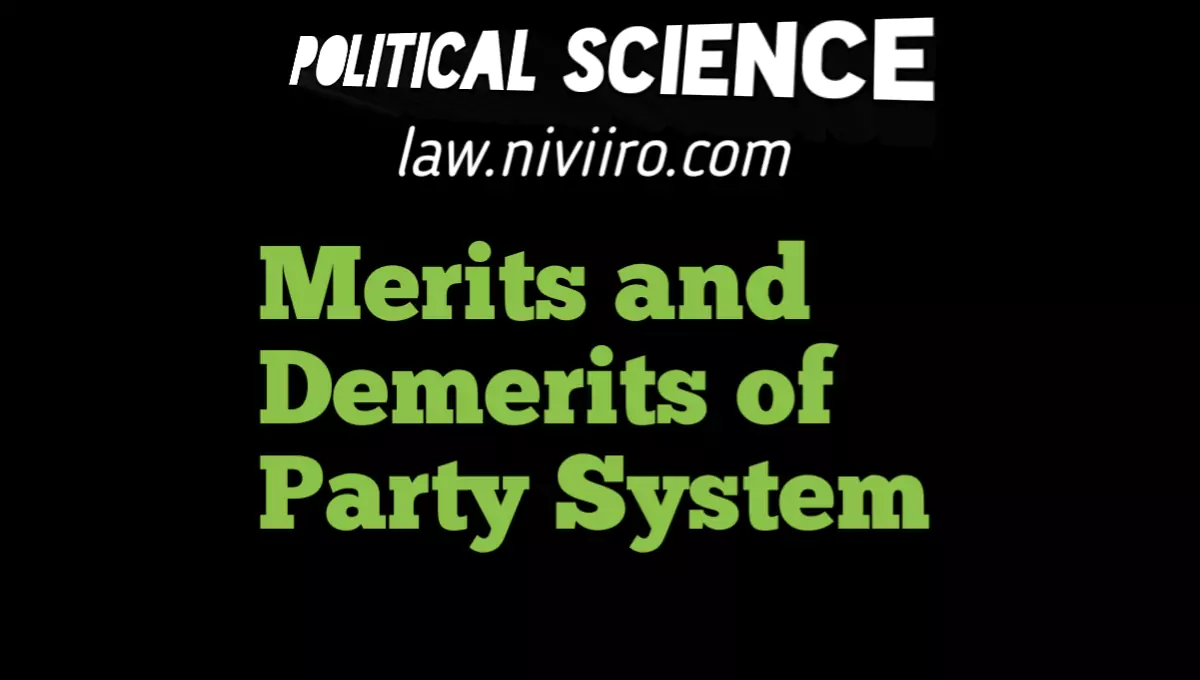The term democracy comes from the Greek words demos and kratos, which mean “the people” and “power,” respectively. Democracy thus means ‘power of the people’.
The following are the definitions of democracy:
Definitions of Democracy
- Prof Seeley says, “Democracy is a government in which everybody has a share”.
- Democracy, according to the Greeks, is the Government in which people rule over themselves.
- According to Gettell, “Democracy is that form of government in which the mass of the population possesses the right to share in the exercise of sovereign power”
- Aristotle considered it as a perverted form of government.
- According to Dicey, “Democracy is a form of government in which the governing body is a comparatively large fraction of the entire naton”.
- In the words of President Abraham According to Bryce, “Democracy is that form of Government in which the ruling power of a state is legally vested, not in any particular class or classes but in the members of the community as a whole”.
Kinds of Democracy
Democracy has two forms (1) Direct or Pure Democracy (2) Indirect or Representative Democracy
Direct Democracy
When the people directly express their will on public affairs, this is referred to as pure or direct democracy. In a mass meeting, the people form laws. According to Hearnshaw, “Direct Democracy was established in Ancient Greek city-states, During the Buddhist times in India, direct democracy was evident in the Vajji Sangh. This system is presently only used in four cantons of Switzerland. The Referendum is a form of direct democracy Initiative, Plebiscite, referendum, and recall.
Merits of Direct democracy
- Citizens who are highly devoted to the state take pride in participating directly in the affairs of the state.
- Every citizen some time or the other gets a chance to serve the state in some capacity. Such opportunities are not at the disposal of citizens in an indirect democracy.
- It was direct democracy that enabled citizens in Athens to have a partnership in life of virtues and happiness, and enjoy the fruits of a higher life.
Demerits of Direct democracy
- The fruits of direct democracy in Greece were enjoyed only by a few people. Aliens, women and slaves were not regarded as citizens, and they reaped no benefits of the privileges of citizenship.
- Liberty and equality, which are so very essential to make democracy real, were absent in ancient Greece.
- Direct democracy can work well only in very small states, and it can never hope to succeed in the large territorial states of the modem times.
Indirect Democracy
In a Representative or Indirect democracy, the people’s will is created and expressed indirectly, rather than directly, through their representatives, to whom they transfer the power of deliberation and decision-making. John Stuart Mill has remarked in this regard that, “Indirect or representative democracy is one in which the whole people or some numerous portion of them exercise the governing power via deputies regularly elected by themselves.”
Related Post
What do you mean by Democracy ?
Prof Seeley says, “Democracy is a government in which everybody has a share”.
Democracy, according to the Greeks, is the Government in which people rule over themselves.
what are the Kinds of Democracy ?
Democracy has two forms (1) Direct or Pure Democracy (2) Indirect or Representative Democracy.
Direct Democracy means ?
When the people directly express their will on public affairs, this is referred to as pure or direct democracy.
References
- J.C. Johari, Political Science
- Prof. S.L. Verma, Modern Political Theory
- M.P. Jain, Political Theory liberal and Marxiam
- Prof. H.C. Verma, Modern Political Theory
- V.D. Mahajan, Political Theory
- R.C. Agarwal, Political Theory
Sources

















